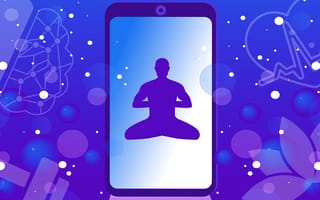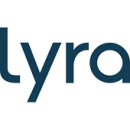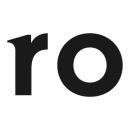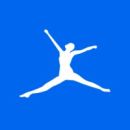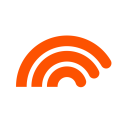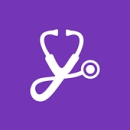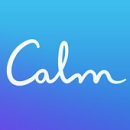Health apps have become a booming sector in tech, and a cornerstone of many people’s wellness regimen — right alongside regular exercise and a healthy diet.
In the early days of the pandemic, when most people were stuck in their homes and hospitals were being overrun, mental health startups positioned themselves as antidotes for the mounting stress, and have since become a popular way for people to access therapy from home. Meanwhile, fitness and weight-loss apps have experienced tailwinds of their own.
Whether they’re coupled with wearable devices, offered as a benefit by users’ employers or even prescribed by a doctor, there are hundreds of applications designed to support a better mind and body. You can read about some of them right here.
Top Health Apps for a Better Mind and Body
- Headspace
- Talkspace
- Fitbit
- Apple
- Calm
- Noom
- MyFitnessPal
- BetterHelp
Health Apps to Know
WHOOP’s wearable technology and data-driven app allow users to track their sleep, fitness and recovery 24/7, and offers actionable insights so that users can improve their lifestyle and overall health. “WHOOP is great at all the things that it does because of all the things we don’t do,” founder and CEO Will Ahmed told Built In. Unlike many other health trackers, the sensor doesn’t have a screen, the app doesn’t measure steps and the company doesn’t sell customer data to third parties.
Click Therapeutics’ mobile software applications are made to be used as prescription medical treatment. It has Digital Therapeutics for several conditions at various stages in its development pipeline, and its digital smoking cessation program known as Clickotine is already available to patients. Through their smartphone, Clickotine users can access personalized, science-based interventions that train them to resist their smoking impulses.
Lyra is a major player in mental health benefits, focusing mostly on matching employees with therapists and mental health coaches through a suite of personalized programs. Employers can also enable the Lyra Health app, which provides employees with on-the-go care through one-on-one messaging and video sessions with professionals, well-being resources and various provider-recommended mental wellness activities.
Through Nourish’s website or mobile app, users can connect with dietitians that can help them meet their personal health goals. The company says more than 90 percent of patients that use its services don't pay anything out of pocket because their virtual sessions are fully covered by insurance. Nourish’s network of hundreds of dietitians have the expertise to provide support for diabetes, eating disorders, autoimmune conditions, prenatal nutrition and other health concerns.
Talkspace provides people with easy access to a licensed therapist. It all starts with a questionnaire in which users specify their needs and goals. From there, the HIPAA-compliant app matches users with several therapists that they can choose from. Users meet their therapists in a virtual therapy room that can be accessed from a mobile device or web browser, and can message their therapist between sessions.
Apple has built a health app that makes it easy for users to store and share important medical information. The app gathers data from iPhones, iPads and Apple Watches and tracks metrics like time spent exercising, calories burnt and time spent in daylight. For users who have been diagnosed with atrial fibrillation, Apple’s health app can monitor irregularities in heart activity and highlight lifestyle factors that could particularly affect those with AFib.
Zocdoc connects patients with medical and dental providers for remote or in-person appointments. Functioning as a digital marketplace for care, the app works for doctors by handling marketing, patient acquisition and even scheduling within its own dashboard, and for patients by connecting them with providers who take their insurance, are accepting new patients and have available appointment times.
Spring Health is a telehealth company that provides behavioral healthcare, like psychotherapy, psychiatry and wellness coaching. It administers these sessions through employer membership plans and health insurance plans, using what it calls “precision mental healthcare” to dial in exactly what type of care each client will benefit most from. Recent research on mental health and employer-sponsored healthcare indicates that the employer cost of preventative and maintenance care like Spring’s program is earned back by lowering overall health plan utilization.
Telehealth company Ro offers a mobile app that lets patients connect with medical providers, manage their care journey and view lab results. Its products and services provide treatment for conditions such as obesity and erectile dysfunction. Ro says patients’ initial online visit is meant to uncover their symptoms and health history so that a provider can give them treatment recommendations tailored to their specific needs.
Known for its smartwatches, trackers and accessories, Fitbit has added a fitness app to its repertoire. Users can jumpstart their health journeys with motivating fitness content, personalized goals and health metrics that include heart rate, sleep activity and calories burned during workouts. For even more details, users can purchase the Fitbit app’s premium plan, unlocking daily readiness scores, wellness reports and other features.
Noom aims to help users achieve and maintain their physical health goals through behavioral changes, as opposed to just strict dieting. The app’s focus on psychology is meant to help people better understand and prevent the things that trigger negative thoughts and harmful compulsive habits, such as overeating. Each new user answers questions identifying their unique challenges and goals, and then Noom designs a plan to help reach those goals, and pairs them with a coach to provide support throughout.
Jabra Hearing’s products include medical-grade hearing aids that are programmed to meet a person’s specific needs and can pair with an app for easy management of device settings. The app also provides access to virtual follow-ups with Jabra’s audiology experts who can remotely adjust hearing aids to address issues as needed.
MyFitnessPal enables users to gauge their nutrition levels by tracking the food they eat, their physical activity routines, the amount of calories burned during workouts and their macronutrient levels. Users can also look up different types of food and view how many calories they contain. With these metrics and content, users can then develop a plan centered around healthy exercise and eating habits moving forward.
Headspace was among the first meditation apps to hit the market, and continues to be a popular resource for guided meditations and other stress-reducing resources. Through the app, users can access meditation techniques, mindfulness exercises, sleep soundtracks and other perks. In 2021, the company merged with mental healthcare giant Ginger to create Headspace Health, a comprehensive mental health and wellbeing app.
The BetterHelp app provides virtual counseling and other mental health services like digital journals, goal trackers, worksheets and wellness webinars geared toward individuals, couples, teens and families. It also offers employer plans that can complement a company’s existing mental healthcare benefits. BetterHelp’s stated goal is to provide “professional, affordable, and personalized therapy in a convenient online format.”
Health tech company Healthee is helping employees navigate benefits and the healthcare system in America. Whether it’s benefits decision support, telehealth care, cost transparency or provider search, the company aims to empower people to live healthier lives through one coherent, easy-to-use app.
SonderMind’s platform lets patients seeking mental health treatment connect with therapists and psychiatrists so they can schedule virtual or in-person appointments that are covered by their insurance plans. The app matches users with providers based on their preferences and insurance coverage, and it comes with tools for tracking progress.
HealthJoy’s platform guides employees through the process of accessing care via their employer-sponsored health benefits. The HealthJoy app includes an AI-powered virtual assistant named JOY along with access to live experts users can interact with to receive personalized support.
Users record their healthy behaviors on Evidation’s mobile app so they can earn points that can be redeemed for cash. The platform also provides them with insights about their activity along with other health education resources, and users can opt to participate in research studies. The company’s solution allows patients to maintain control over their data, while also giving medical researchers access to a willing participant pool to fuel healthcare innovation.
Calm is a mindfulness app that offers guided meditations, relaxing music and other tools to help users get a better night’s sleep. One of its best-known features is the guided sleep story library, with narrations from celebrities like Idris Elba, Matthew McConaughey and Priyanka Chopra Jonas. Calm also has a suite of tools that companies can offer to employees to help them reduce stress and improve focus.

